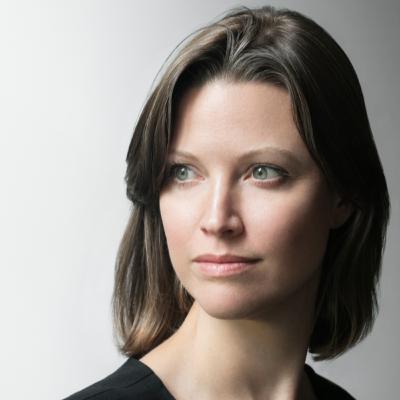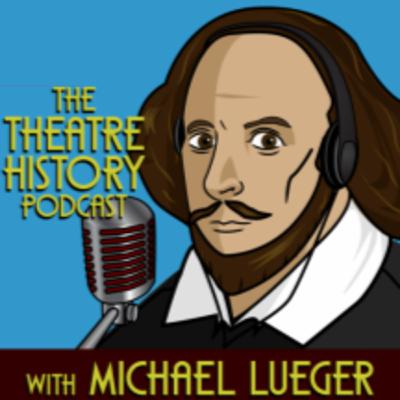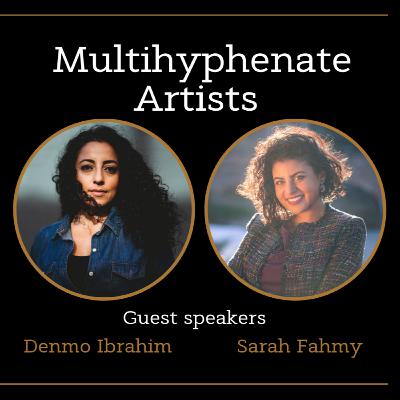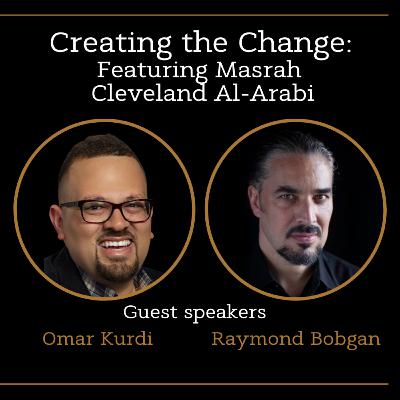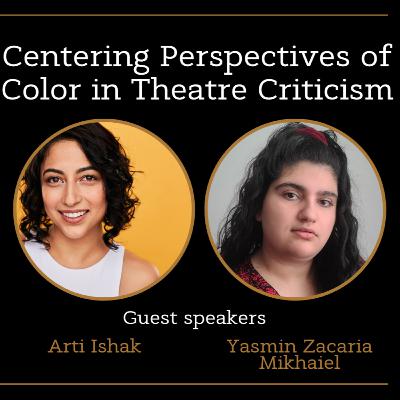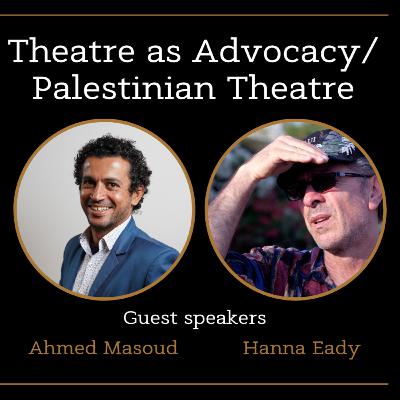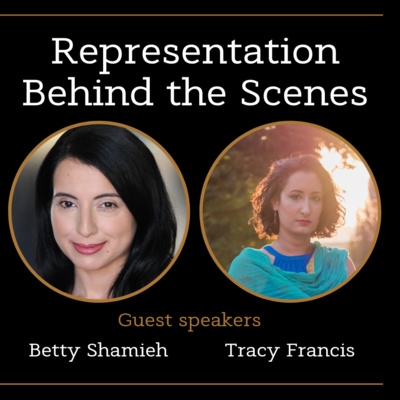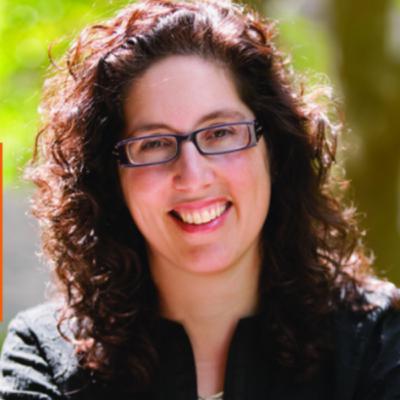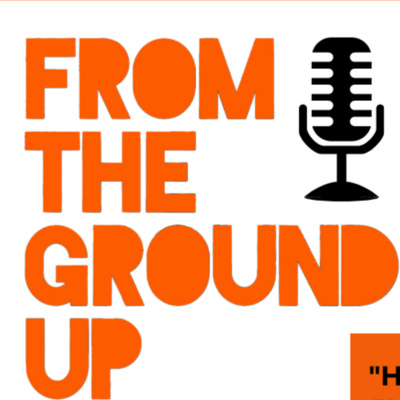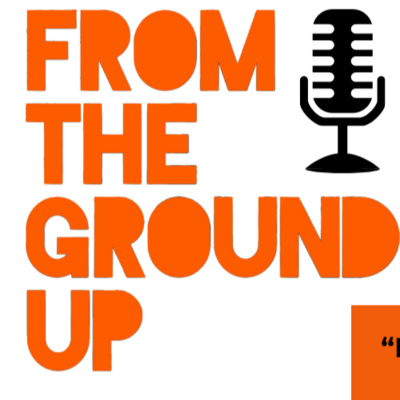Discover (Archive from 2012 to 2021) HowlRound Theatre Commons Podcasts
(Archive from 2012 to 2021) HowlRound Theatre Commons Podcasts

(Archive from 2012 to 2021) HowlRound Theatre Commons Podcasts
Author: HowlRound Theatre Commons
Subscribed: 65Played: 991Subscribe
Share
© HowlRound Theatre Commons
Description
This podcast feed is no longer updated. In order to find the podcast shows created for HowlRound Theatre Commons, search "howlround" anyhere you listen or download podcasts.
277 Episodes
Reverse
This episode explores the recent revival of Ntozake Shange’s for colored girls who have considered suicide / when the rainbow is enuf, directed and choreographed by Camille A. Brown. Hosts Leticia Ridley and Jordan Ealey contextualize the production, its ongoing relevance and legacy, and its resonance in Black feminist theatre, dance, and performance.
As a part of the New Deal, the Federal Theatre Project of the 1930s funded theatre in the United States at an unprecedented level, providing paid work for trained theatremakers and low-cost performances to audiences all around the country. Corinna Schulenberg and Dr. Elizabeth A. Osborne discuss the history of the Federal Theatre Project and its potential to act as a model for a New Federal Theatre Project formed in conjunction with racial justice, climate justice, and Land Back movements.
Shakespeare looms large over both the American and British theatre scenes. But his outsize influence means that we’ve long neglected a dizzying array of fascinating and brilliant theatre written by other early modern England dramatists. Robert Crighton and the Beyond Shakespeare Company are working to remedy this, and Robert joins us for this episode to discuss how they’re trying to expand our awareness of the theatre of this era.
The ancient Roman comedies of Plautus have inspired playwrights from Shakespeare to Sondheim. But they've also been seen as grim reminders of the oftentimes horrifying world of ancient Rome, where violence and slavery were commonplace. Dr. Amy Richlin joins Mike Lueger to talk about her book Slave Theater in the Roman Republic, which explores how Plautus's plays gave voice to enslaved persons during this era.
In the nineteenth century, Charlotte Cushman became United States’ first celebrity actress. Tana Wojczuk, who has written a new biography of Cushman, joins the Mike Lueger to talk about the actress’s remarkable life both on stage and off.
As the University of Pittsburgh prepares to make August Wilson’s archive publicly accessible, Dr. Sandra G. Shannon and William Daw join Mike Leuger to discuss Wilson’s flourishing legacy.
In this week’s Theatre History Podcast, Dr. Megan Sanborn Jones discusses the history of Mormons in theatre and the pageant tradition in the Church of Jesus Christ of Latter-day Saints. Through her deep research on these pageants, Dr. Jones explores the unique fusion of faith, history, and performance in Mormon pageantry.
Dr. Ibby Cizmar joins the Theatre History Podcast to share her research on Ernie McClintock, who worked to develop a system of training and performance that could serve the specific needs of African American actors in the mid-twentieth century. A significant influence in the Black Arts Movement, McClintock’s methods continue to influence institutions and theatremakers today.
Michael Lueger is joined by director, performer, and educator Dr. Rachel Blackburn to discuss diversity and intersectionality within the stand-up comedy world and how comics are engaging with social issues and movements.
Artistic identities can be complicated, and many theatremakers work equally within two or more disciplines simultaneously. The most interesting work is rarely created in a vacuum. These multidisciplinary artists create diverse projects in all senses of the word, broadening our idea of what theatre can and should be. Today, two such multihyphenate artists, Denmo Ibrahim and Sarah Fahmy, converse about their multiple identities, how they reconcile and manage their myriad expertise, and the role of multihyphenate artists in today’s theatre landscape.
MENA artists continue to work hard to create representation in large theatrical arenas by pushing for their work to be produced on contemporary stages. However, since some major theatres only allot 1 or 2 slots a year for plays by BIPOC artists, MENA artists have frequently been ignored. They have found other ways to create thriving artistic spaces for actors, directors, and playwrights alike. Masrah Cleveland Al Arabi has created a space for MENA artists to thrive. This artist-led organizational infrastructure serves as an example of how change can be made within existing theatrical structures. Today we are joined by Raymond Bobgan and Omar Kurdi.
In the greater conversation about MENA or SWANA identity, many national and ethnic groups do not neatly fit into that category or are in between geographic areas. One of the largest groups that are both within and without what is considered the “Middle East” is Iran. So many Iranian leaders are making intentional space for the diversity and specificity of their culture by creating companies for Iranian artists. In this episode, we highlight two Iranian theatre companies: Seda Iranian Theatre Ensemble in Seattle, WA, and Peydah Theatre Company in NYC.
For artists, getting a quality review of their show is often critical to continued success. It can make or break new plays and emerging artists. However, works by BIPOC artists have often been subjected to the white critical gaze in reviews, which has frequently not made any attempt to account for the complexity of culture outside of the reviewer’s own understanding. There has been a major push by BIPOC artists to counter the white supremacy of reviews, including who writes the critiques and what they write about. In this episode, Arti Ishak and Yasmin Zacaria Mikhaiel talk about their experiences as MENA artists and critics, how they negotiate the field of criticism, and what changes can and must be made to the landscape.
Community engagement is more than a post-show talk or touring production. These two directors and administrative leaders are community engagement practitioners in everything that they do, including their artmaking and program curation. They work both as independent artists and through organizations. We will discuss the nature of community engagement as an artistic practice, how their MENA backgrounds influence their practice, and how the theatre atmosphere is or should shift to be community engaged in an authentic and equitable way.
Site-specific performances have the possibility to truly make all the world a stage. To produce site-specific and devised theatre performances in the United States and abroad, artists must engage with the questions of the politics of any space, what communities inhabit or use it, and who is invited into it. Sahar Assaf, a Lebanese theatremaker and the new artistic director of Golden Thread Productions, and Zeina Daccache, an actor, director, and the founder of Catharsis: Lebanese Center for Drama Therapy come together to talk about site-specific and devised theatre pieces in Lebanon, the rest of the MENA world, and the United States.
Theatre is a powerful tool for political and community advocacy efforts. From the stage to the streets, theatre can illuminate underheard narratives, reveal different perspectives on political events, and humanize the struggles of groups. There is a long history of theatre as a tool for advocacy in the Palestinian community in the US and abroad. In this episode, we talk to two Palestinian writers and theatremakers who have been using the art form as a way to bring awareness to the conflict in Palestine, give audiences with concrete tools for change, and provide direct relief to Palestinians internationally.
Last season we talked about on-stage representation in contemporary theatre. But what does representation look like behind the scenes and why is it important? How does the process change when there are MENA creative team members, production staff, directors, and playwrights involved from the inception of a project to its closing night? What role does this representation play in new work development? We will discuss all of this and more with playwright Betty Shamieh and artistic director of Boom Arts Tracy Francis as they share their past experiences, insight, and ideas for the future.
Tony Award-winning producer Mara Isaacs discusses how she puts collaboratively creative work in front of national audiences through her producing organization, Octopus Theatricals. This final episode of season two holds hot takes on boards, theatricality, and connective tissue around artist-centered producing.
What does fiscal sponsorship do for you and your organization? Colleen Hughes, associate director of programming at Fractured Atlas, walks us through the broad array of opportunities they provide. She’ll also shed light on fundraising trends she’s seen with non-profit organizations throughout the pandemic.
Founder, ensemble member, and former artistic director of Lookingglass Theatre Company, David Catlin, shares how their limitless aesthetic showcases their Chicago-based artists across the country. In addition, we dive into their unique shared leadership model, their growth and goals for the future, and how tension with your board members can be a good thing.





